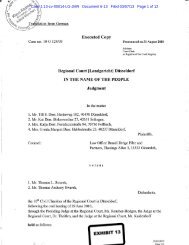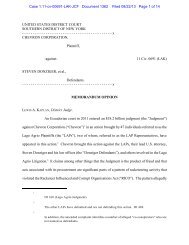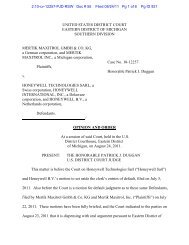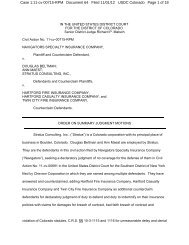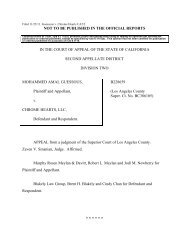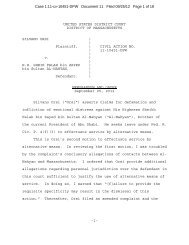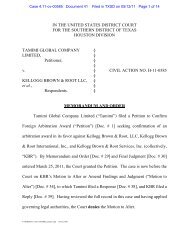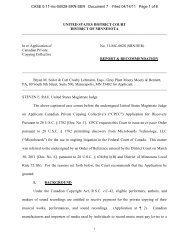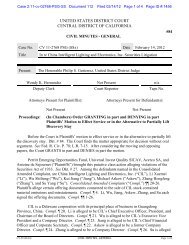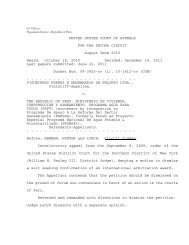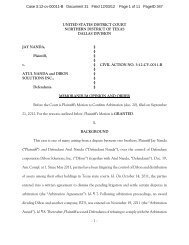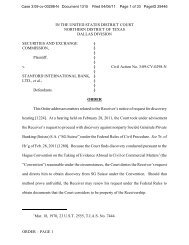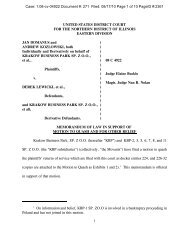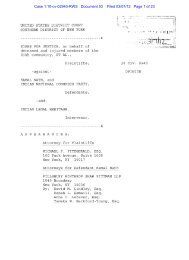G:\BobX3\2011-12\Fraserside. set aside deafult ... - Letters Blogatory
G:\BobX3\2011-12\Fraserside. set aside deafult ... - Letters Blogatory
G:\BobX3\2011-12\Fraserside. set aside deafult ... - Letters Blogatory
You also want an ePaper? Increase the reach of your titles
YUMPU automatically turns print PDFs into web optimized ePapers that Google loves.
Case 3:11-cv-03005-MWB Document 20 Filed 07/12/11 Page 14 of 20<br />
Greek translation, coupled with the difficulties it experienced in locating and securing local<br />
Iowa counsel to represent it. Fraserside responds that Youngtek’s conduct does not<br />
constitute excusable neglect warranting <strong>set</strong>ting <strong>aside</strong> the default.<br />
a. Legal Standards<br />
Rule 55(c) expressly provides that “[t]he court may <strong>set</strong> <strong>aside</strong> an entry of default for<br />
good cause. . . .” FED. R. CIV. P. 55(c) (emphasis added); see Stephenson v. El-Batrawi,<br />
524 F.3d 907, 912 (8th Cir. 2008) (quoting FED. R. CIV. P. 55(c)). “When examining<br />
whether good cause exists, the district court should weigh ‘whether the conduct of the<br />
defaulting party was blameworthy or culpable, whether the defaulting party has a<br />
meritorious defense, and whether the other party would be prejudiced if the default were<br />
excused.’” Id. (quoting Johnson v. Dayton Elec. Mfg. Co., 140 F.3d 781, 784 (8th Cir.<br />
1998)). I examine each of these factors, in turn. In doing so, I am mindful that “default<br />
judgment is not favored by the law,” United States v. Harre, 983 F.2d 128, 130 (8th Cir.<br />
1993), and “should be a ‘rare judicial act.’” Comiskey v. JFTJ Corp., 989 F.2d 1007, 1009<br />
(8th Cir. 1993) (quoting Edgar v. Slaughter, 548 F.2d 770, 773 (8th Cir. 1977)).<br />
b. Analysis<br />
i. Blameworthiness or culpability<br />
First, I examine Youngtek’s culpability or blameworthiness in failing to file a timely<br />
response to the complaint. I must “focus heavily on the blameworthiness of the defaulting<br />
party.” Johnson, 140 F.3d at 784. I must also distinguish conduct that is “contumacious”<br />
or demonstrates an “intentional delay or disregard for deadlines and procedural rules,”<br />
from conduct that involves only a “marginal failure to meet pleading or other deadlines.”<br />
Id. (quotation marks omitted). The Eighth Circuit Court of Appeals has “rarely, if ever,<br />
excused the former.” Id.<br />
14



